
The Mediterranean Games is a multi-sport event organised by the International Committee of Mediterranean Games (CIJM). It is held every four years among athletes from countries bordering the Mediterranean Sea in Africa, Asia and Europe. The first Mediterranean Games were held in 1951 in Alexandria, Egypt, while the most recent games were held in 2022 in Oran, Algeria.
Boro Primorac is a Bosnian professional football manager and former player who most recently managed Croatian First Football League club Hajduk Split.

The 1951 Mediterranean Games, officially known as the I Mediterranean Games, and commonly known as Alexandria 1951, were the 1st Mediterranean Games. The Games were held for 15 days from 5 to 20 October 1951 in Alexandria, Egypt, where 734 athletes from 10 countries participated. There were a total of 13 different sports.

Nenad Stekić was a Serbian and Yugoslav long jumper, best known for his European record of 8.45 metres, second only to Bob Beamon's world record at the time.
Žarko Varajić was a Montenegrin basketball player and executive. He represented the Yugoslavia national team internationally.
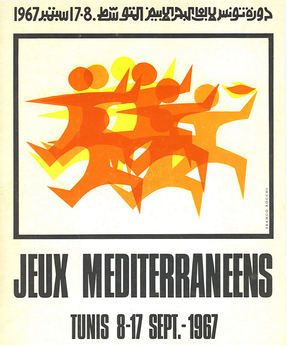
The 1967 Mediterranean Games, officially known as the V Mediterranean Games, and commonly known as Tunis 1967, were the 5th Mediterranean Games. The Games were held in Tunis, Tunisia over 9 days, from 8 to 17 September 1967, where 1,249 athletes from 11 countries participated. For the first time, women took part in the games. There were a total of 93 medal events from 14 different sports.
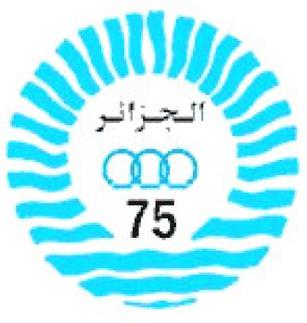
The 1975 Mediterranean Games, officially known as the VII Mediterranean Games, and commonly known as Algiers 1975, were the 7th Mediterranean Games. The Games were held in Algiers, Algeria, from 23 August to 6 September 1975, where 2,444 athletes from 15 countries participated. There were a total of 160 medal events from 19 different sports.
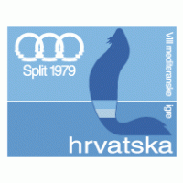
The 1979 Mediterranean Games, officially known as the VIII Mediterranean Games, and commonly known as Split 1979, were the 8th Mediterranean Games. The Games were held in Split, Yugoslavia, from 15 to 29 September 1979, where 2,408 athletes from 14 countries participated. There were a total of 192 medal events from 26 different sports.

The IX Mediterranean Games, commonly known as the 1983 Mediterranean Games, were the 9th Mediterranean Games. The Games were held in Casablanca, Morocco, from 3 to 17 September 1983, where 2,192 athletes from 16 countries participated. There were a total of 162 medal events from 20 different sports.

The X Mediterranean Games, commonly known as the 1987 Mediterranean Games, were the 10th Mediterranean Games. The Games were held in Latakia, Syria, from 11 to 25 September 1987, where 1,996 athletes from 18 countries participated. The Games featured a total of 162 medal events from 19 different sports.

The XI Mediterranean Games, commonly known as the 1991 Mediterranean Games, were the 11th Mediterranean Games. The Games were held in Athens, Greece, from 28 June to 12 July 1991, where 2,762 athletes from 18 countries participated. There were a total of 214 medal events from 24 different sports.
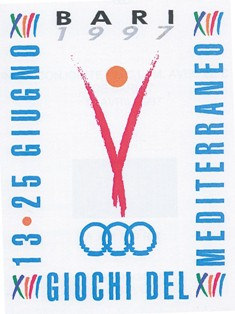
The XIII Mediterranean Games, commonly known as the 1997 Mediterranean Games, were the 13th Mediterranean Games. The Games were held in Bari, Italy, from 13 to 25 June 1997, where 2,956 athletes from 21 countries participated. There were a total of 234 medal events from 27 different sports.
Basketball at the Mediterranean Games has been played consistently since 1951 for men, and 1987 for women. The Yugoslavia national team was the most successful men's team, while the Croatia women's national team being the most successful in the women's competition. Since 2018, the Mediterranean Games has exclusively featured 3x3 basketball.
Football has been played consistently at the Mediterranean Games since the year 1951 for men. Italy and Spain is the most successful team. From 1991, national teams are not allowed, which means only youth teams participate in the tournament.

Handball has been played consistently at the Mediterranean Games since the year 1967 for men except in 1971 and since the year 1979 for women except 1983. The Yugoslavian national handball team is the most successful men's team and the French women's national handball team is the most successful team for women.
The 1979 Mediterranean Games football tournament was the 8th edition of the Mediterranean Games men's football tournament. The football tournament was held in Split, Yugoslavia between 21 and 29 September 1979 as part of the 1979 Mediterranean Games and was contested by 8 teams.

The Socialist Federal Republic of Yugoslavia participated at ten Mediterranean Games from 1951 to 1991, with the exception of 1955. Yugoslavia was the host of the Mediterranean Games in 1979 in Split, when it finished first on the medal podium.

Athletics at the 1979 Mediterranean Games were held in Split, Yugoslavia.
Goran Rakočević, is a former Serbian professional basketball player. He is the father of Igor Rakočević, a Serbian professional basketball executive and former player.
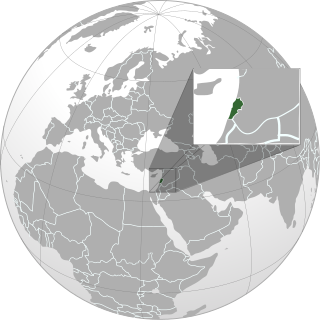
Lebanon–Yugoslavia relations were historical foreign relations between Lebanon and now split-up Socialist Federal Republic of Yugoslavia. Both countries self-identified with the wider Mediterranean region and shared membership in the Non-Aligned Movement. Formal bilateral relations between Lebanon and Yugoslavia were established in 1946. Lebanon participated at the 1961 First Conference of Heads of State or Government of the Non-Aligned Movement in Belgrade. Both countries experienced significant instabilities and conflicts with weak central authorities which in Yugoslav case led to complete dismemberment of federal institutions and violent breakup of the state. Instability in both countries led to the establishment of special courts; the Special Tribunal for Lebanon and International Criminal Tribunal for the former Yugoslavia.














